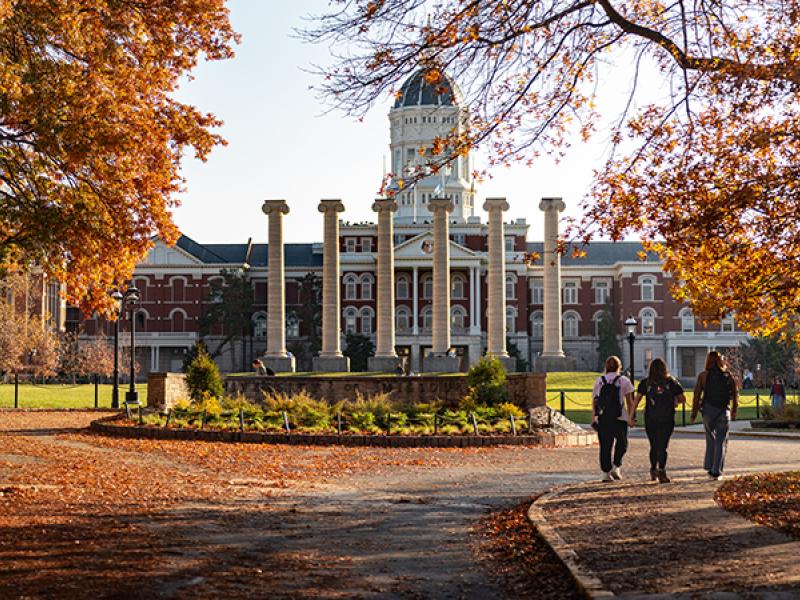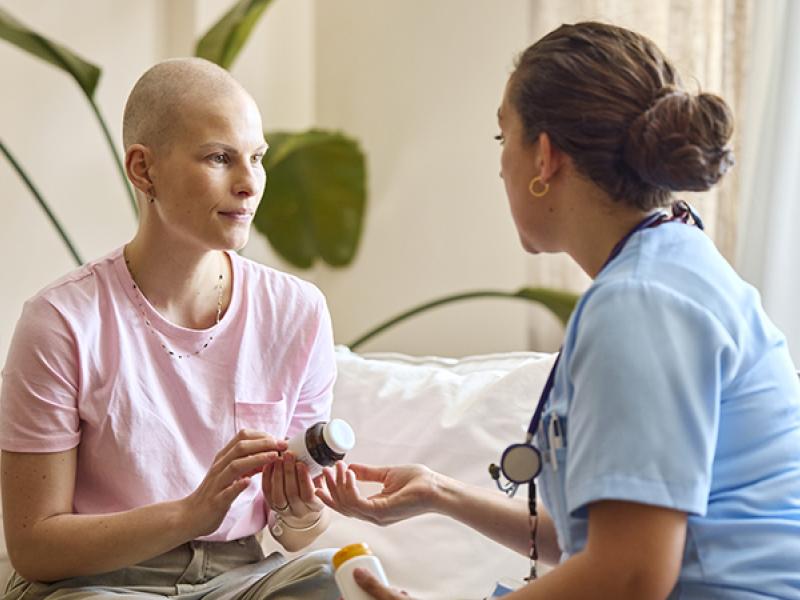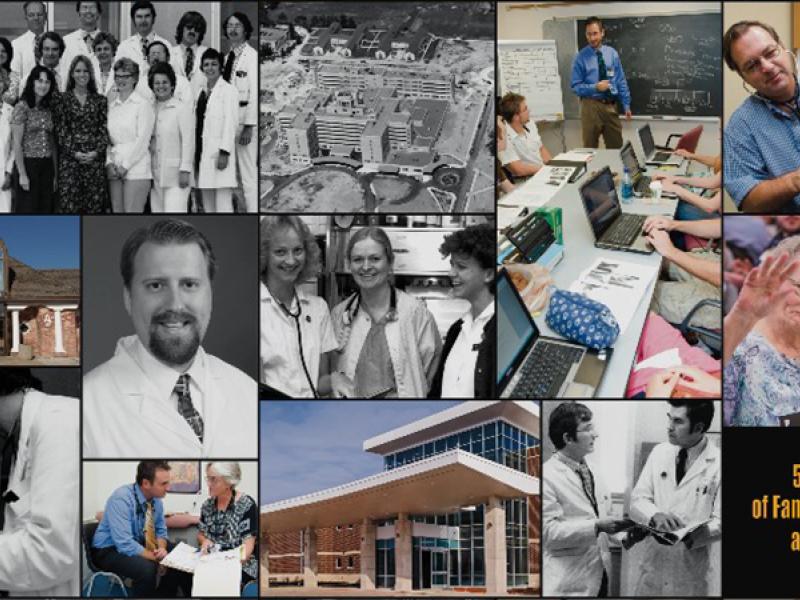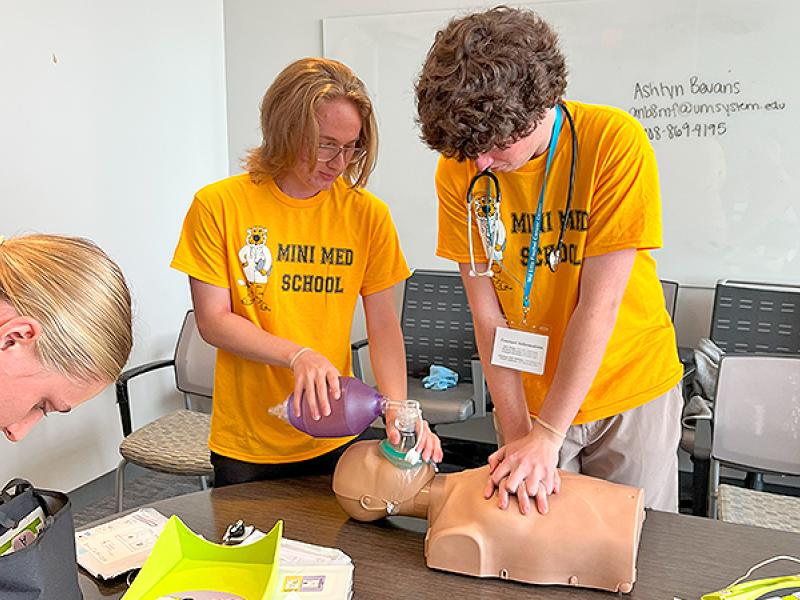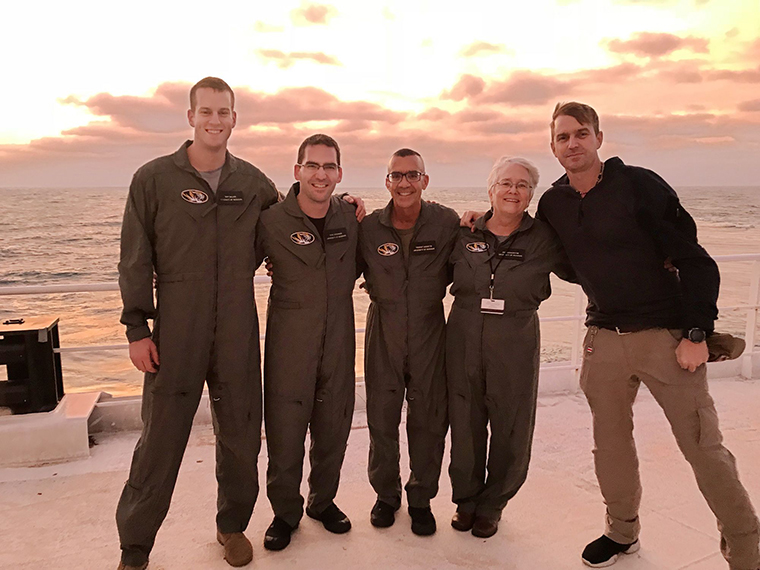
In keeping with the school’s mission of improving the health of all people, 10 members of the MU School of Medicine recently served the people of Ecuador.
From Oct. 18 to 27, faculty, staff and students collaborated with Columbia-based Global First Responder to provide medical and surgical health care in the coastal city of Esmeraldas, Ecuador. The team, hosted by the U.S. Southern Command of the Department of Defense, worked side-by-side with military personnel to provide health care and training at land-based medical sites and aboard the United States Navy hospital ship USNS Comfort as part of the Enduring Promise 2018 initiative to Central and South America.
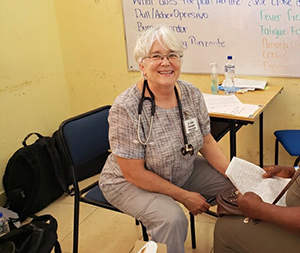
The team provided surgical services, such as cataract extraction, ocular refraction for corrective lenses, as well as internal medicine, endocrine, and family medicine consultation and care. Preventive services and public health education were also offered during the visit. Care was provided at two makeshift clinics in Esmeraldas, which enabled providers like Debra Howenstine, MD, associate professor of clinical family and community medicine, to provide health care services and education in the strained region.
“Many of the patients had waited in line for extended periods of time, some overnight,” Howenstine said. “The clinics provided an amazing opportunity to promote international understanding while offering medical care to individuals with limited resources. It became clear to me how critical these efforts are in fostering goodwill between countries and an understanding between individuals.”
While the volunteers provided health care services and education, they weren’t the only ones giving lessons. Their experiences in Ecuador will further help them improve their care of multicultural patients in the United States.
“These kind of experiences are great cultural interchanges, as we had interactions not only with the local populations as patients, but we also worked side-by-side with health care providers from other countries in Latin America, Canada and elsewhere,” said Warren Lockette, MD, professor of medicine. “Because of the remoteness of some of the clinics on land and the absence of high-tech equipment, these types of activities force us to hone our clinical examination skills.”
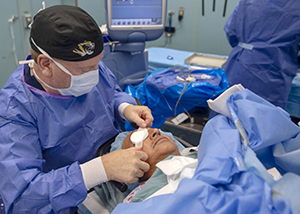
Aboard the USNS Comfort — one of the largest hospital ships in the world with 1,000 patient beds — John Jarstad, MD, associate professor of clinical ophthalmology, performed cataract surgery in the ship’s 12 operating rooms. Jarstad has served on dozens of short-term missions, though each time, he comes away with a refreshed perspective.
“I’ve been on 43 previous short-term medical humanitarian missions with many charitable organizations,” he said. “It’s so gratifying to train doctors from less-developed countries, yet I also learn something from them every time that helps me be a better surgeon or more efficient when I return home.”
Accepting an invitation from the U.S. Navy and U.S. Southern Command, the MU trip was organized by Lockette and Adam Beckett, DO, assistant professor in the Department of Emergency Medicine and the founder of Global First Responder. There will be additional opportunities for health care providers and trainees to participate in similar humanitarian missions and disaster preparedness training in Guyana and Guatemala with the U.S. Southern Command in the spring.
Article Spotlight
Trip Participants
- Adam Beckett, DO, Emergency Medicine
- Megan Burnam, RN, BSN, IBCLC, Women’s Health
- Maggie Cardonell, MD, Ophthalmology
- Debra Howenstine, MD, Family Medicine
- Mary Ruth Karrer
- Warren Lockette, MD, Medicine
- Coleman Miller, Endocrinology
- John Jarstad, MD, Ophthalmology
- Lauren Valbracht, MD, Emergency Medicine
- Ryan Woodman, DO, Medicine


